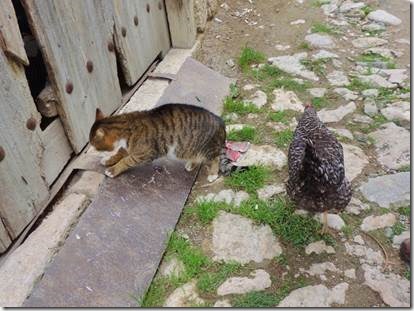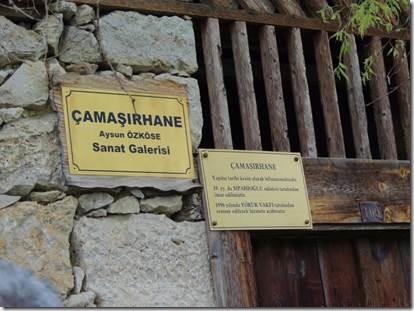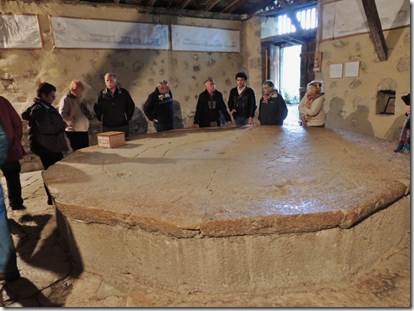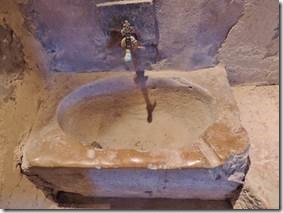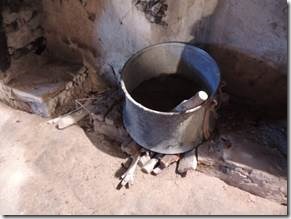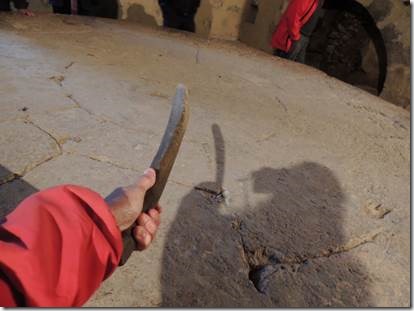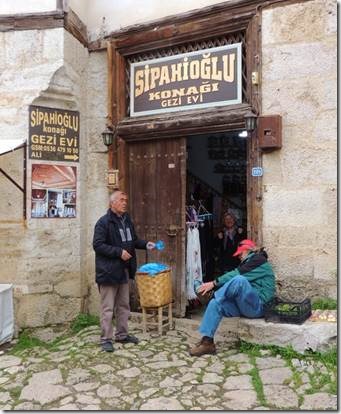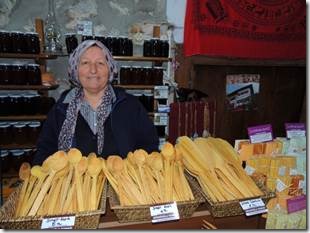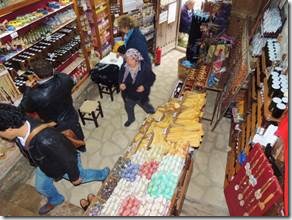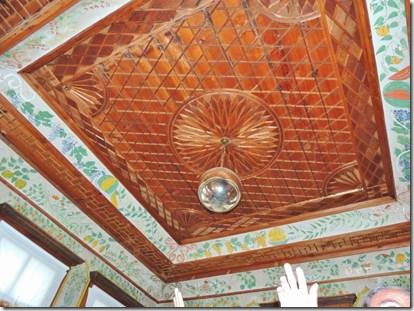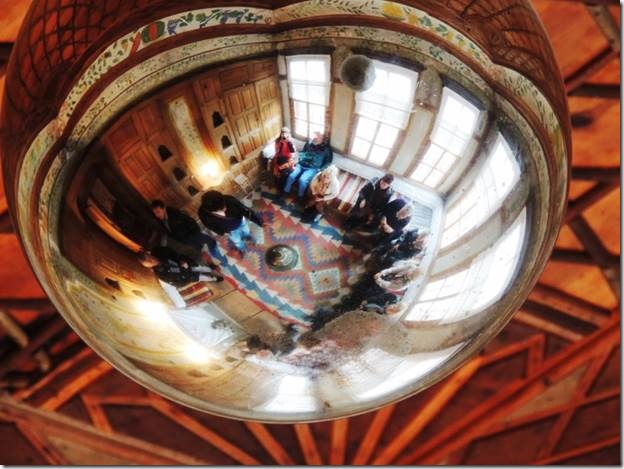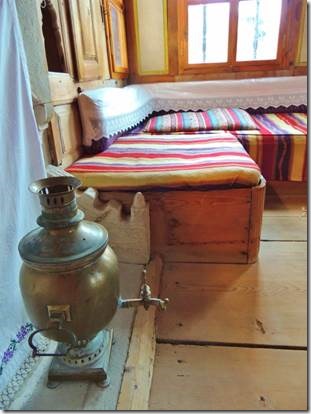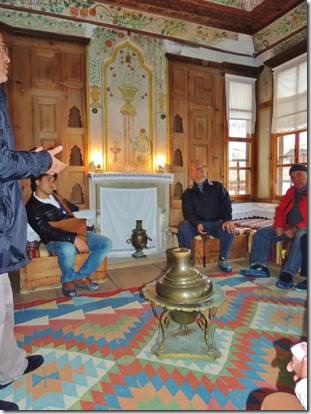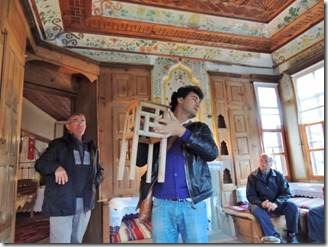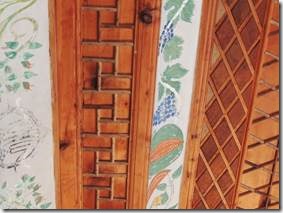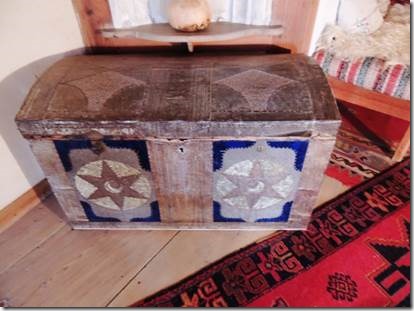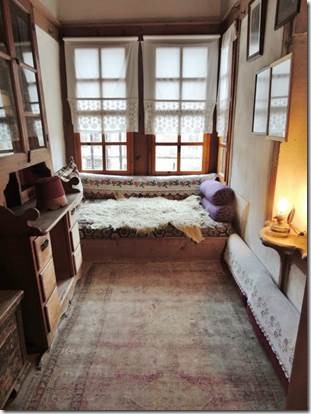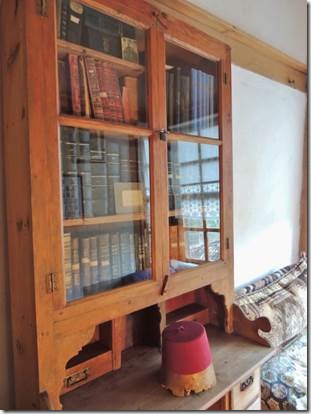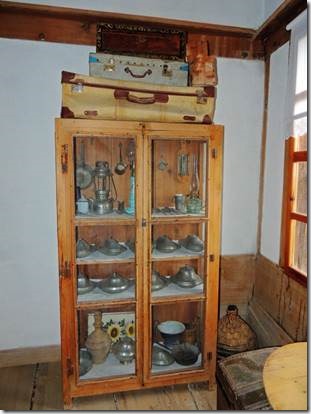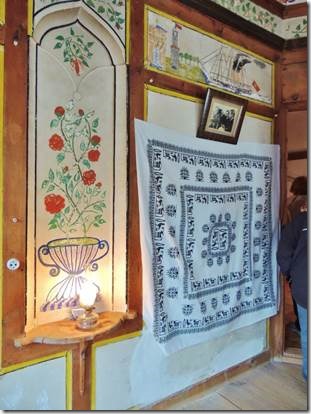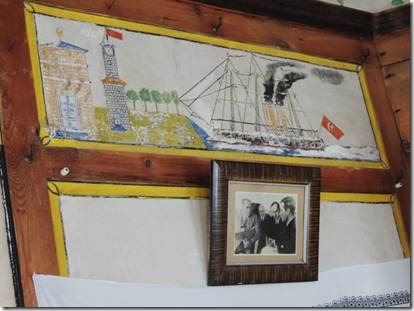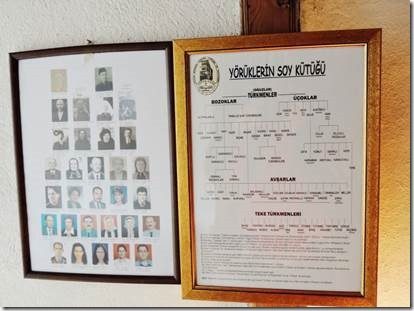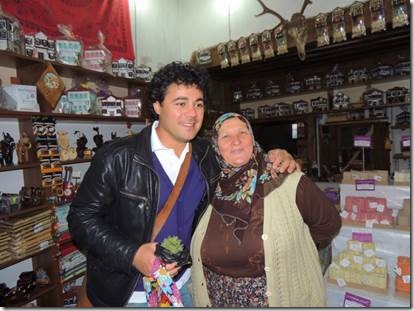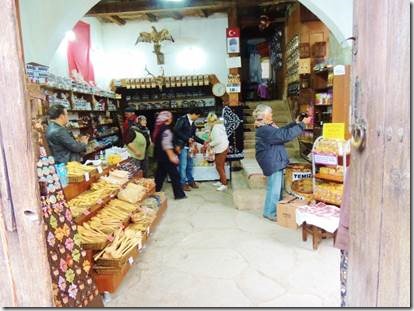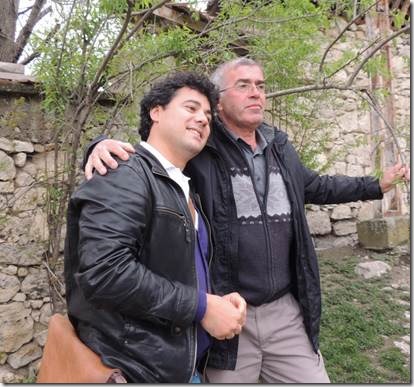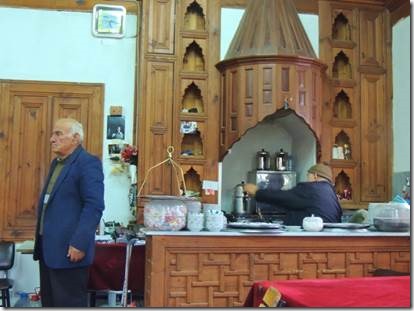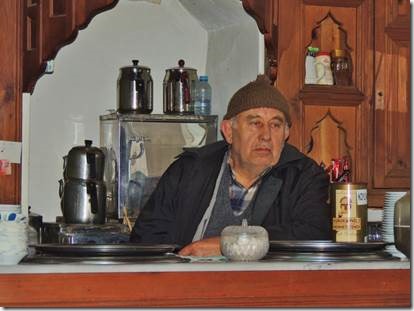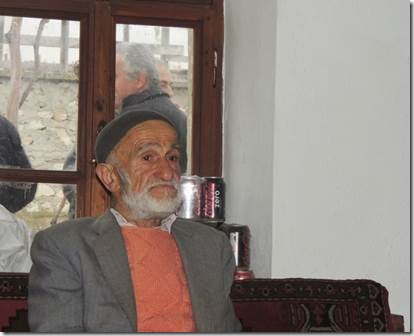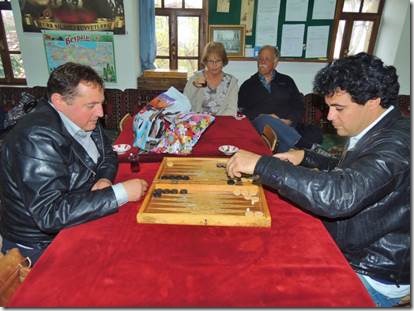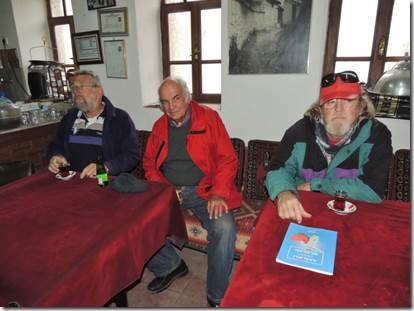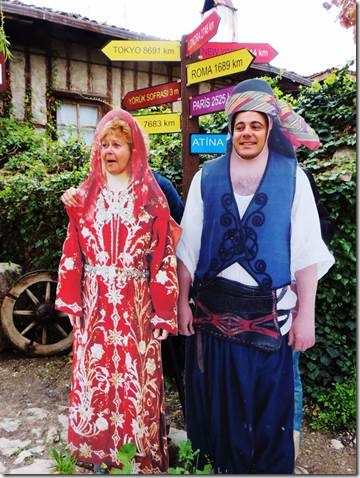Merhaba,
I loved Yörük Köyü. Here’s the rest of the story.
Ru
DoraMac
http://yorukvillage.wordpress.com/yoruk-village/the-yoruks-arrival/ fascinating site about the history of Yörük Köyü that I stumbled across researching the Bektasi dervish sect that were part of Yörük Köyü history. But the Bekatsi sect is just too much to go into here so I’m not. This email is about the “laundry,” the Ottoman house, and the coffee/tea shop we visited.
“Along the Kastamonu road, 15 km east of Safranbolu, Yörük Köyü (Nomad Village) is a beautiful settlement of crumbling old houses once inhabited by the Dervish Bektaṣi sect. The government forces the nomads to settle here so it could tax them, and the villagers grew rich from their baking prowess.”
Lonely Planet Turkey Guide
|
The cat outside and the dog inside were having a verbal battle. Both ignored the chicken. |
|
Çamaşır means underwear or laundry. Adding hane makes it “laundry building.” I can’t say it was an old time Laundromat, because there was nothing “automatic” about it. In Cemil Ipeҫi Spkaḡi is the 300 year old çamaşırhane (laundry) with arched hearths where the water was heated in caldrons. Taller women scrubbed at one end of the tilted stone table, shorter ones at the other; the dirty water drained in the center. The table’s 12 sides are a clue to the villages Bektaṣi origins (like modern Shi’a Muslims, the Bektaṣi believed in 12 imams, the last of whom had been hidden by Allah.) Older women would sit at the edges sizing up the grandchildren-producing potential of their younger counterparts, whose bodies would be revealed by their wet clothes. Lonely Planet Turkey Guide. |
|
The 16th-century hamam is in ruins, but the old communal washing hall, or çamaşırhane, where village woman meet over laundry to share gossip and sing songs, was restored in 1996. It is a popular meeting place, a club for women. http://www.cornucopia.net/ |
|
Sink and cauldron |
|
Stick to beat the laundry. The stick was worn smooth as were all of the stone surfaces. I’ve told Randal if our washing machine ever stops working, we get a new one or I’m going home. I had to hand wash our dirty laundry while we were on the hard at Bodrum for 5 days. Many cruisers have no washing machine and always have to hand launder their clothes, towels, etc. or take them to a çamaşırhane if the marina has no coin op facility. I’m definitely spoiled. |
|
Visiting an old Ottoman home. Sipahioḡlu Konaḡi Gezi Evi is one of the villages enormous old houses. The builders warring sons divided the mansion in two and you tour the selamlik and the haremlik separately. Lonely Planet The one unmissable site is the Sipahioğlu Konağı Gezi Evi, the local museum. This mansion is so enormous that the tour has to be offered in two parts, by far the livelier of the two being offered by an apple-cheeked countrywoman who speaks not a word of English but doesn’t let that stand in the way of communicating with her guests. As you wander round the house you will be able to inspect the same sort of built-in wooden furnishings that are commonplace in Safranbolu: revolving cupboard doors, built-in mouse traps and purpose-designed wooden niches to accommodate all life’s necessities. Here, however, you will also be treated to a sign-language explanation of how hot water running behind the walls acted as central heating and of how the primitive toilets worked. Perhaps the highlight of the visit is just sitting in the little wooden gazebo on the roof, which would have been used as a smoking retreat-with-a-view by male members of the family. The fez-stand against the wall serves as a reminder of an item of headgear that was once ubiquitous but which Atatürk rendered as illegal as the Bektaşı dervishes. http://www.todayszaman.com |
|
The first floor was a “gift shop.” |
|
Beautiful wood and painted ceiling with a mirror-like ceiling fixture. |
|
Reflection in the ceiling fixture. |
|
Somavar Room heater, geometric nomad carpet pattern and lovely decorative painted panel and around the walls . |
|
The same pattern of the stool is the one on the wall design. |
|
A trunk |
|
The “library” with the owner’s red fez |
|
A display case with vintage luggage and some decorative needlework |
|
A close-up shows that King Edward is in the photo with Atatὕrk. 4 September, 1935. Visit of King Edward VIII to Ataturk in Istanbul. |
|
Family Tree |
|
The “other house next door” also had a gift shop we visited. They also had a gift shop. |
|
Our Yὄrὕk Kὄyὕ guide with Taṣ, not the apple-cheeked woman, but a very knowledgeable man. |
|
“..village’s only coffee house is still the men’s club, untouched, a place for elders to reflect on the old days, on country matters and affairs of state, or to play backgammon. “ When we walked in most of the men went outside to sit in the garden which was too bad. |
|
Bar keep who never cracked a smile and served us all Turkish tea. |
|
The eldest elder, reportedly over 100 years old. (I snuck his photo as he really didn’t want to pose.) |
|
Ayden and Taṣ play backgammon while Dorothy and Mark look on. |
|
Tinker to Evers to Chance….Anton David Randal I have no idea why I thought of those 3 looking at these 3. |
|
Our intrepid leader Gwen and her sidekick, Taṣ |

